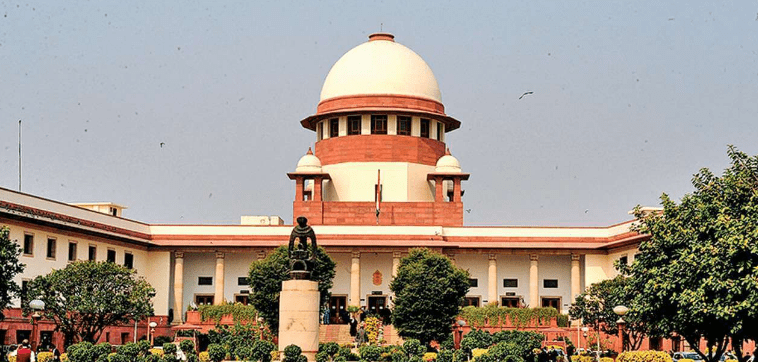
According to the country’s highest court, the penalty and interest imposed by Sections 45 and 47(4A) of the Gujarat Sales Tax Act 1969 are statutory and required, and the Commissioner/Assessing Officer does not have any discretion over whether or not to impose them. The Supreme Court ruled that the Act of 1969’s text was unambiguous and that the mandatory punishment could not be avoided. This decision will have an impact on income tax, GST, and other legislation.
The High Court of Gujarat in Ahmedabad’s ruling and order from Tax Appeal No. 1283/2006, which invalidated the fine and interest assessed under Section 45 of the Gujarat Sales Tax Act, 1969, have been challenged by the State of Gujarat. The assessee’s line of activity involved applying coal tar and enamel coating to pipes under indivisible work contracts. The Assessing Officer (AO) determined that as the coating of pipes contract is not a civil works contract, the composition amount is not due at the respondent’s deposited rate of 2%. Before the First Appellate Authority, the assessee filed a first appeal, which was denied. The appeal was rejected by the Gujarat Value Added Tax Tribunal, which also upheld the decisions made by the First Appellate Authority and the AO.
The assessee filed Tax Appeal No. 1283/2006 before the High Court as an additional appeal. The High Court has overturned the fine and interest imposed in accordance with Sections 45(6) and 47(4) of the Act, 1969. The State filed an appeal, contending that the deletion of the fine and interest assessed under Sections 45(6) and 47(4) of the Act, 1969, was a grave error on the part of the High Court. According to Ms. Aastha Mehta and Ms. Deepanwita Priyanka, the High Court did not fully scrutinize Section 45, subsection (6) of the Act of 1969. The High Court has not properly taken into account the fact that the punishment imposed in accordance with Section 45(6) of the Act, 1969 is both a statutory punishment and a compulsorily imposed punishment.
On behalf of the State, Ms. Mehta, a knowledgeable attorney, claims that the Commissioner lacks the authority to impose any penalties other than those specified in Section 45(6) of the Act, 1969. The difference between the amount thus assessed or reassessed and the amount paid can be used to determine whether the dealer failed to pay the tax, and in that case, the dealer is subject to a penalty of up to 1.5 times the difference. According to Ms. Mehta, the expression “shall be levied” in Section 45 of the Act means that the assessee is legally required to pay the penalty and interest. She also claimed that failing to pay the fine carries repercussions under Section 45 of the Act of 1969 and is receivable as unpaid land revenue. She added that it is not necessary to establish mens rea or take the assessee’s sincere belief into account when calculating the payment of the penalty and interest.
In the cases of Arcelor Mittal Nippon Steel India Limited, Chairman, SEBI v. Shriram Mutual Fund and Anr., Guljag Industries v. Commercial Taxes Officer, Competition Commission of India v. Thomas Cook (India) Limited and Anr., and Riddhi Siddhi Gluco Biols Ltd. v. State of Gujarat, the State has heavily relied on the decisions of the Gujarat High Court. The assessee has argued that it is incorrect to rely on the Gujarat High Court’s ruling in the case of Jyoti Overseas P. Ltd. v. State of Gujarat and that it is not relevant to the facts of the current case. The High Court overturned the imposition of penalties and interest in part because the assessed tax had already been paid and the assessee was in possession of a genuine opinion regarding its tax due.
If the difference between the amount of tax paid and the amount of tax due is more than 25% of the amount thus paid, the Gujarat Sales Tax Act allows for the automatic assessment of a penalty. Mens rea was determined not to be a necessary component for violating a civil Act in the case of Dharamendra Textile Processors and Shriram Mutual Fund. The Gujarat High Court ruled that there is no need to take the assessee’s mens rea into account because the penalty imposed under Section 45(6) of the Act is statutory and required.
Name: Sarah Garima Tigga, Semester: VI, College: Symbiosis Law School (Pune)





0 Comments